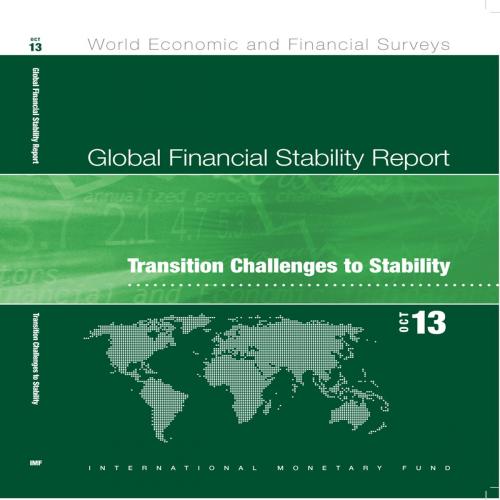Global Financial Stablity Report, October 2013: Transition Challenges to Stability
Business & Finance, Economics, International Economics, Finance & Investing, Banks & Banking, Finance| Author: | International Monetary Fund. Monetary and Capital Markets Department | ISBN: | 9781484319154 |
| Publisher: | INTERNATIONAL MONETARY FUND | Publication: | October 9, 2013 |
| Imprint: | INTERNATIONAL MONETARY FUND | Language: | English |
| Author: | International Monetary Fund. Monetary and Capital Markets Department |
| ISBN: | 9781484319154 |
| Publisher: | INTERNATIONAL MONETARY FUND |
| Publication: | October 9, 2013 |
| Imprint: | INTERNATIONAL MONETARY FUND |
| Language: | English |
The October 2013 Global Financial Stability Report examines current risks facing the global financial system as it undergoes a series of transitions along the path toward greater financial stability. The United States may soon move to less accommodative monetary policies and higher long-term interest rates as its recovery gains ground. Emerging markets face a transition to more volatile external conditions and higher risk premiums. Japan is moving toward the new Abenomics policy regime, and the euro area is moving toward a more robust and safer financial sector. Finally, the global banking system is phasing in stronger regulatory standards. Chapter 1 examines the challenges and risks of each of these transitions. Chapter 2 looks at efforts by policymakers to revive weak credit growth, which has been seen by many as a primary reason behind the slow economic recovery. The chapter argues that policies are most effective if they target the constraints that underlie the weakness in credit. But it cautions policymakers to be aware of the fiscal costs and implications for financial stability of credit-supporting policies. Chapter 3 examines how banking funding structures matter for financial stability and the potential impact of various regulatory reforms. It concludes that careful implementation of reform efforts are important to ensure that financial stability benefits are realized.
The October 2013 Global Financial Stability Report examines current risks facing the global financial system as it undergoes a series of transitions along the path toward greater financial stability. The United States may soon move to less accommodative monetary policies and higher long-term interest rates as its recovery gains ground. Emerging markets face a transition to more volatile external conditions and higher risk premiums. Japan is moving toward the new Abenomics policy regime, and the euro area is moving toward a more robust and safer financial sector. Finally, the global banking system is phasing in stronger regulatory standards. Chapter 1 examines the challenges and risks of each of these transitions. Chapter 2 looks at efforts by policymakers to revive weak credit growth, which has been seen by many as a primary reason behind the slow economic recovery. The chapter argues that policies are most effective if they target the constraints that underlie the weakness in credit. But it cautions policymakers to be aware of the fiscal costs and implications for financial stability of credit-supporting policies. Chapter 3 examines how banking funding structures matter for financial stability and the potential impact of various regulatory reforms. It concludes that careful implementation of reform efforts are important to ensure that financial stability benefits are realized.















